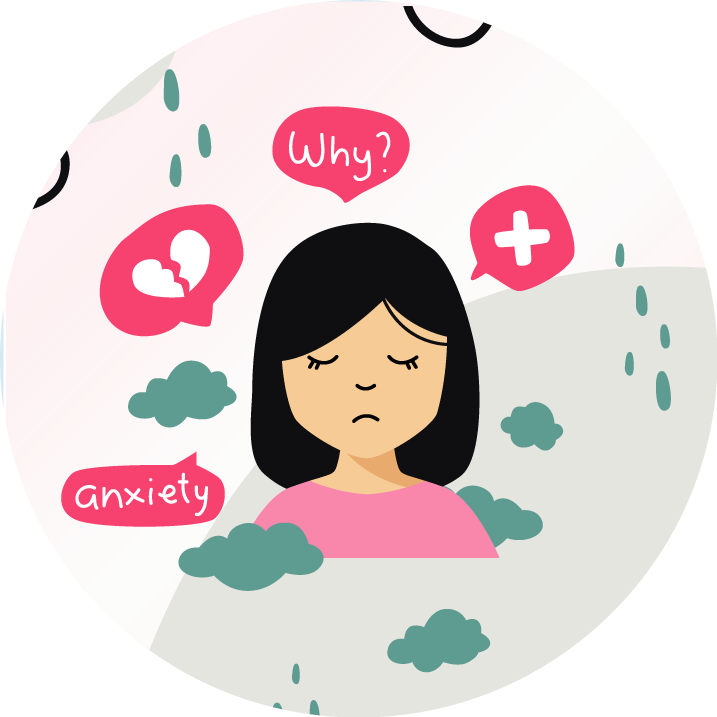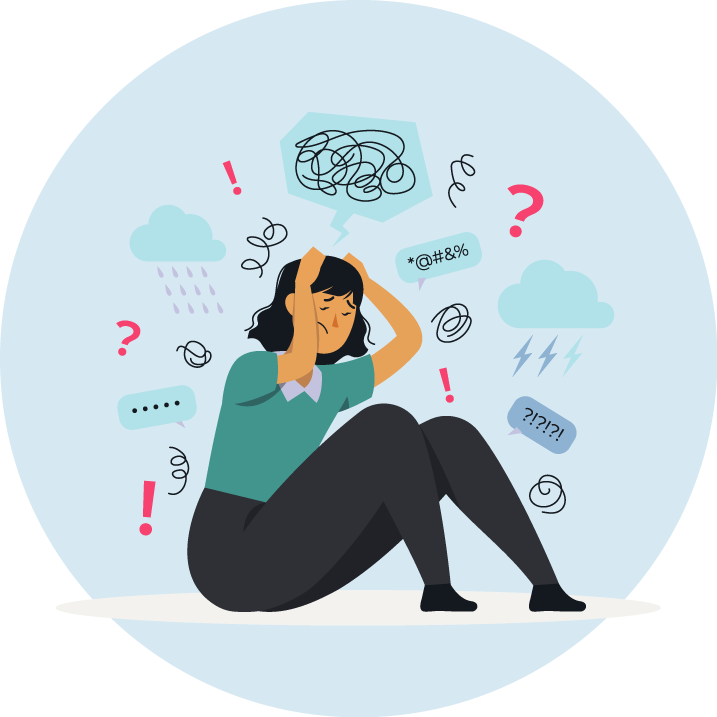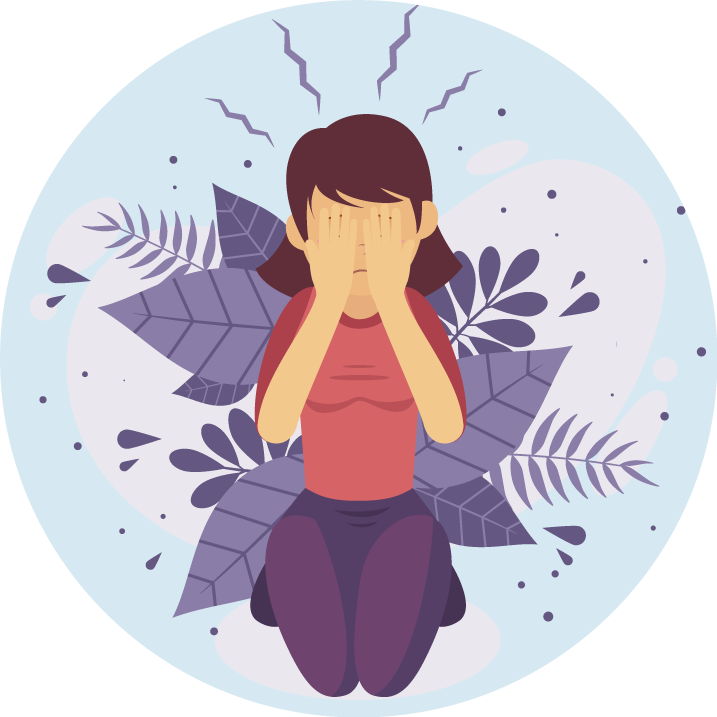Breaking Away from the Grip of Toxic Friendship

Breaking Away from the Grip of Toxic Friendship
July 28 2025 TalktoAngel 0 comments 528 Views
Friendships are often seen as essential pillars of emotional support, joy, and companionship. They enrich our lives and help us navigate through various phases of personal and professional growth. However, not every friendship contributes positively to our well-being. Some relationships may seem authentic on the surface but leave us emotionally drained, devalued, and mentally exhausted. These are known as toxic friendships, and recognising them is crucial for protecting your peace of mind.
In an era where constant digital connection often masks emotional harm, it becomes difficult to differentiate between genuine loyalty and unhealthy endurance. Walking away from a long-standing but harmful friendship can be one of the hardest, yet most courageous, steps you take. Yet, choosing your mental health over emotional turmoil is a courageous and necessary step.
What Is a Toxic Friendship?
A toxic friendship is marked by persistent behaviours that negatively impact your emotional state. Unlike the occasional disagreements that occur in healthy relationships, toxic dynamics tend to be ongoing and harmful. These behaviours can include manipulation, excessive criticism, passive-aggression, envy, or a lack of respect for personal boundaries.
Dr. Lillian Glass, a psychologist and communication expert, introduced the concept of “toxic people” in her 1995 work. She describes such individuals as those who bring you down, making you feel worse rather than better after interactions (Glass, 1995).
Common warning signs of a toxic friendship include:
- Constant drama or unnecessary rivalry
- Guilt-tripping or emotional manipulation
- One-sided efforts to maintain the relationship
- Jealousy disguised as concern or sarcasm
- Frequent "honest" criticism that feels more like judgment
- Ignoring or violating your personal boundaries
Feeling anxious, depleted, or undervalued after spending time with them
The Psychological Impact of Toxic Friendships
Negative friendships can take a serious toll on your mental health. Research by Umberson and Montez (2010) indicates that harmful social ties are directly linked to elevated stress levels, anxiety, and depressive symptoms. While toxic romantic relationships often gain public attention, toxic friendships are more covert and can be just as damaging, if not more so.
These dynamics may cause individuals to question their self-worth and feel undeserving of healthy relationships. The emotional confusion often leads to guilt, making people feel bad for wanting to walk away. But the longer you remain in such a relationship, the more it chips away at your self-esteem and emotional resilience.
Why We Hold On
Despite the harm, people often cling to toxic friendships for several reasons:
- Shared history: Fond memories and past experiences can cloud the present reality.
- Fear of social isolation: The idea of having no one—even a harmful friend—can feel worse than staying.
- Guilt and obligation: Especially when the toxic friend depends on you emotionally or manipulates your empathy.
- Denial: It’s difficult to accept that someone close could be causing emotional harm.
Popular culture sometimes romanticizes loyalty with phrases like “ride or die,” encouraging people to stay in unhealthy situations longer than they should. Staying loyal doesn't mean tolerating what harms your emotional health.
How to Move On from a Toxic Friendship
- Recognize the Problem:- Start by reflecting on how the relationship truly makes you feel. Pay attention to emotional patterns, perhaps by journaling after interactions. If the friendship leaves you feeling drained more often than uplifted, that’s a sign something’s wrong.
- Set Healthy Boundaries:- Healthy friendships respect your space and individuality. Be honest and direct about what you need—whether that’s more respect, less criticism, or emotional space. If your boundaries are consistently ignored, it's time to reassess the value of the relationship.
- Reduce Interaction Gradually:- Consider reassessing how much time and effort you dedicate to the friendship. For emotionally manipulative dynamics, a slow retreat can often be less confrontational while still protecting your space.
- End Things Respectfully:- Should you decide to move on, try to part ways with grace and understanding. A thoughtful message or conversation acknowledging the good times—but clearly stating your reasons—can bring closure without bitterness.
- Lean on Support Systems:- Letting go is emotionally taxing. Talk to supportive friends, family, or a mental health professional to help process your emotions. Platform like TalktoAngel offer online counselling to guide you through transitions.
- Prioritise Healing:- The end of any relationship brings grief. Allow yourself to mourn, reflect, and rebuild. Engage in activities that uplift you, and surround yourself with positive influences who value and respect you.
Rebuilding Your Confidence
Leaving a toxic relationship often leaves behind self-doubt. You might question your ability to trust again or feel guilty for stepping away. Remember, choosing yourself is not selfish—it’s necessary. Reconnect with your strengths, revisit passions, and practice self-compassion.
Affirmations, support groups, therapy, or simply spending time with people who uplift you can help rebuild confidence. The aim isn’t to grow resentful, but rather to grow wiser about the kind of relationships you allow into your life.
Conclusion
While toxic friendships can deeply wound, they can also teach powerful lessons in self-worth, resilience, and boundary-setting. Acknowledging that you deserve relationships built on mutual respect and kindness is a life-changing realisation.
By choosing to step away from a toxic friendship, you’re not abandoning someone—you’re honouring yourself.From there, you're better positioned to build the kind of relationships that bring genuine joy and emotional growth.
Contributed By: Dr. (Prof.) R. K. Suri, Clinical Psychologist and Life Coach, &. Ms. Tanu Sangwan, Counselling Psychologist.
References
- Glass, L. (1995). Toxic People: 10 Ways Of Dealing With People Who Make Your Life Miserable. St. Martin’s Press.
- Umberson, D., & Montez, J. K. (2010). Social relationships and health: A flashpoint for health policy. Journal of Health and Social Behavior, 51(1_suppl), S54–S66. https://doi.org/10.1177/0022146510383501
- Bonior, A. (2011). The Friendship Fix: The Complete Guide to Choosing, Losing, and Keeping Up With Your Friends. St. Martin’s Griffin.
- Chopra, D. (2020). The Healing Self: A Revolutionary New Plan to Supercharge Your Immunity and Stay Well for Life. Harmony Books.
Leave a Comment:
Related Post
Categories
Related Quote

“Anxiety is a thin stream of fear trickling through the mind. If encouraged, it cuts a channel into which all other thoughts are drained.” - Arthur Somers Roche

"It is okay to have depression, it is okay to have anxiety and it is okay to have an adjustment disorder. We need to improve the conversation. We all have mental health in the same way we all have physical health." - Prince Harry

“You say you’re ‘depressed’ – all I see is resilience. You are allowed to feel messed up and inside out. It doesn’t mean you’re defective – it just means you’re human.” - David Mitchell, Cloud Atlas

“Fear less, hope more, eat less, chew more, whine less, breathe more, talk less, say more, hate less, love more, and good things will be yours.” - Swedish Proverb

“What mental health needs is more sunlight, more candor, and more unashamed conversation.” - Glenn Close
Best Therapists In India
























SHARE